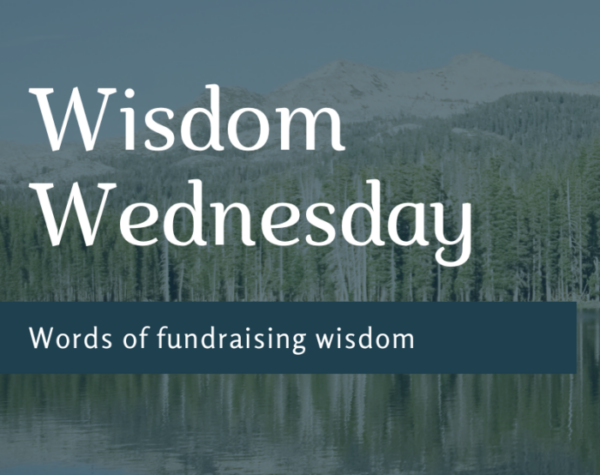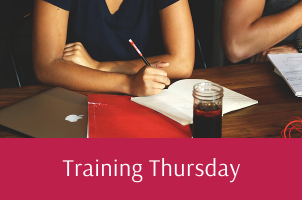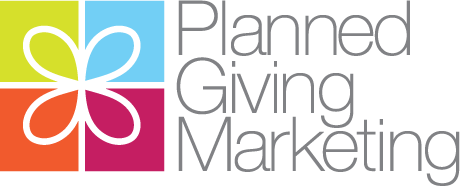Planned Giving Donor Stories That Inspire Others to Give
Do you absolutely LOVE to write donor stories?
We didn’t think so.
But, as a successful fundraiser, you understand how powerful a donor story can be to your planned giving program. If you’re not working with Planned Giving Marketing yet (who would write a powerful, engaging story for you!), you’ll have to write the donor story yourself and try to capture the interest of other prospects.
Don’t worry! YOU CAN DO THIS!
Just keep these few key points to keep in mind and write your best donor story yet:

DONOR STORIES SHOULD INSPIRE
Your main goal is to engage people with an amazing, inspirational story of your planned giving donor! So, when you’re telling your donor story, make sure you capture the impact the planned gift is going to have on people. See, while your prospects, friends, and supporters do love your organization, it’s not the organization itself that inspires anyone to leave a gift. It’s what the organization accomplishes. That is–who do you help because of your mission?
When a planned giving story inspires someone to engage, here’s what’s going on in their subconscious:
- they realize people JUST LIKE THEM make planned gifts
- they realize you offer them a trusted place to support so they can really have an impact!
- they understand that making a planned gift is a joyful, positive, and special thing to do. The mere fact that one of your donors would SHARE a story and let you post a photo of her on your website is inspiring! Planned gifts are something to be proud of, and there’s no need to keep charitable estate plans a secret.
DONOR STORIES SHOULD FOLLOW A STRUCTURE
People learn in a systematic way. It’s just how our brain thinks. So arrange your donor story in a way that attracts, engages, and inspires. To do that, let’s take a trip back in time. Remember the Five Ws in your English class? Who, what, when, where, and why? Well, donor letters need a lot of that information, too.
And the structure is important, because when you follow this structure, you capture someone’ attention faster so they will keep reading! Here’s the plan:
Start with the WHY
Why does your donor about your cause? That’s not necessarily the same thing as caring about your org. Did your donor receive a scholarship, help with medical care, or some other gift from your organization at some point? Was she always passionate about the environment, and she likes the things you’re doing to preserve it? Did your donor enjoy the teachers and education he received so he wants to ensure other students get that same experience–even if they can’t afford it on their own? Find the WHY. Start with the WHY.
Tell the WHAT is one sentence
What exactly did the donor do? She made a great decision to update her will and include a bequestion to Your Organization. That’s it. You don’t need to include the legal process for how she did it. Just say what she did.
Talk about the WHO. The donor matters–but be careful–a planned giving donor story isn’t a biography! Do you remember when you had to go on a job interview or to discuss serving on a board and they said, “Tell me a little bit about yourself”? Did you start from birth? No, of course not. You told about yourself as it related to the position. That’s what happens here. Just include anecdotal information about your donor things about your donor as it relates to her connection to your organization. And tell them to set the overall inspirational context of the story. You can even include biographical information as part of a quote. For example, ” … said Fabulous Donor, who taught English at Springfield High School for 37 years.”
Finally, end with WHY again
Remind the readers what happens now. It’s “closes the story loop.” It can be as simple as a sentence that says something similar to, “Now Fabulous Donor feels confident knowing generations of students will continue to be trained in the Franciscan tradition.”
Do you need help writing your next donor letter?
There’s no need to struggle.
Planned Giving Marketing is here to make your job easier by providing effective marketing tools that help you get more engagement and more gifts.
Give us a Call to get help with your next donor story.

70 ½ vs. 73?
70 ½ vs. 73? We’ve been hearing some confusion from a lot of clients around the age split of 70 ½ vs. 73 for gifting from an IRA. Which is the correct age? What are the rules around each age? When it comes to marketing this great gifting strategy, the problem is both...

Wisdom Wednesday – Are you 85?
Are you 85? I didn't think so ...We've talked about the mindset of our most senior donors in the past. And we'll most likely talk about it forever. Why? None of us know what it's like to be 85 - unless we're 85.We've all been 16 before. Most of us have even recovered...

Generational Marketing – Traditionalists
Generational Marketing - TraditionalistsTraditionalists include those aged 77+ and will be a key group when it comes to your planned giving outreach.Learning how to communicate with this portion of the population is important for your success. Discovering the nuances...
Tech Tuesday – IRS Discount Rate
IRS Discount Rate With the signing of the Consolidated Appropriations Act of 2023 and the provision referred to as Secure 2.0, there is newfound interest around Charitable Gift Annuities* (CGAs). Because of this we’re all becoming reacquainted with the IRS...

